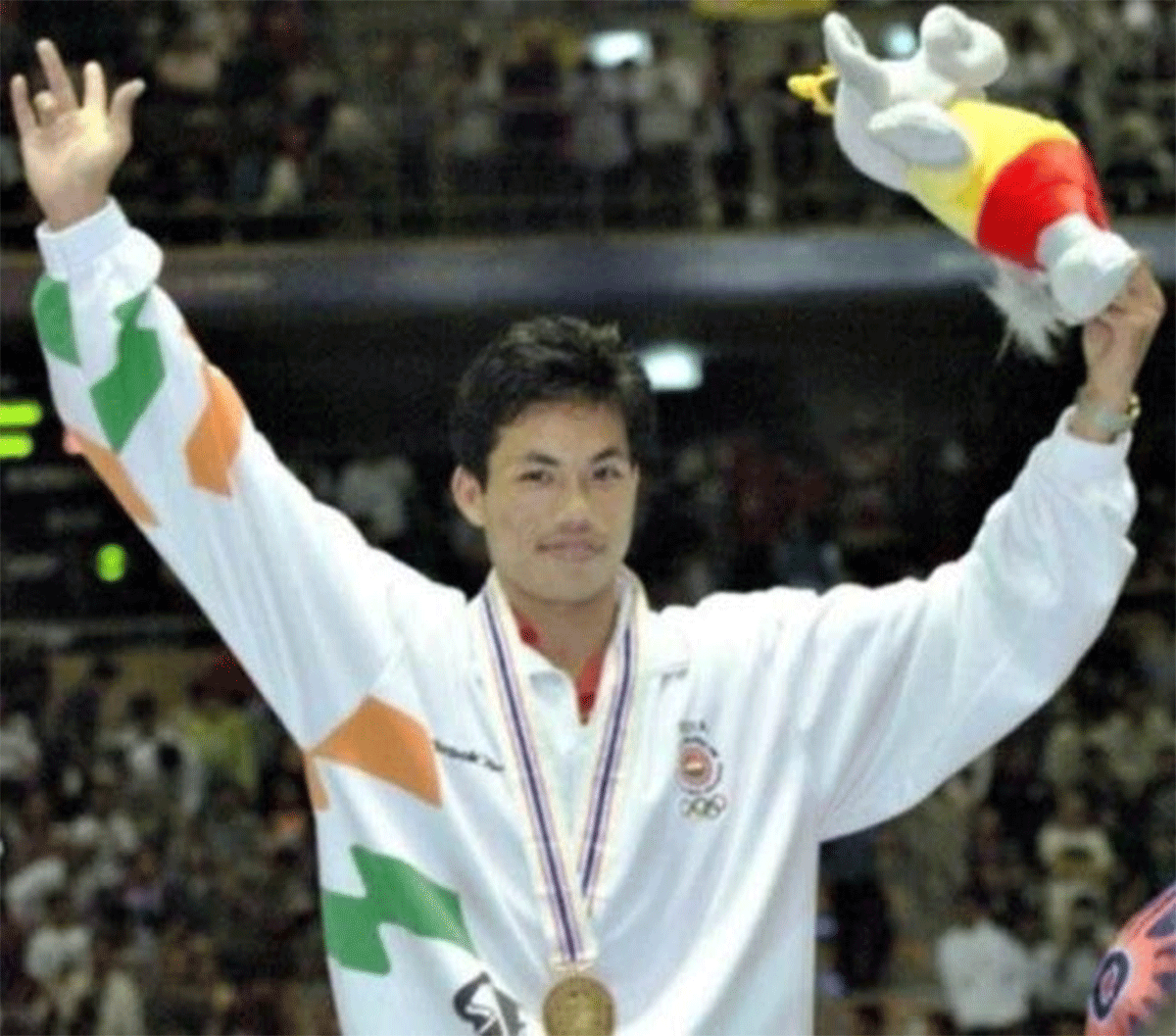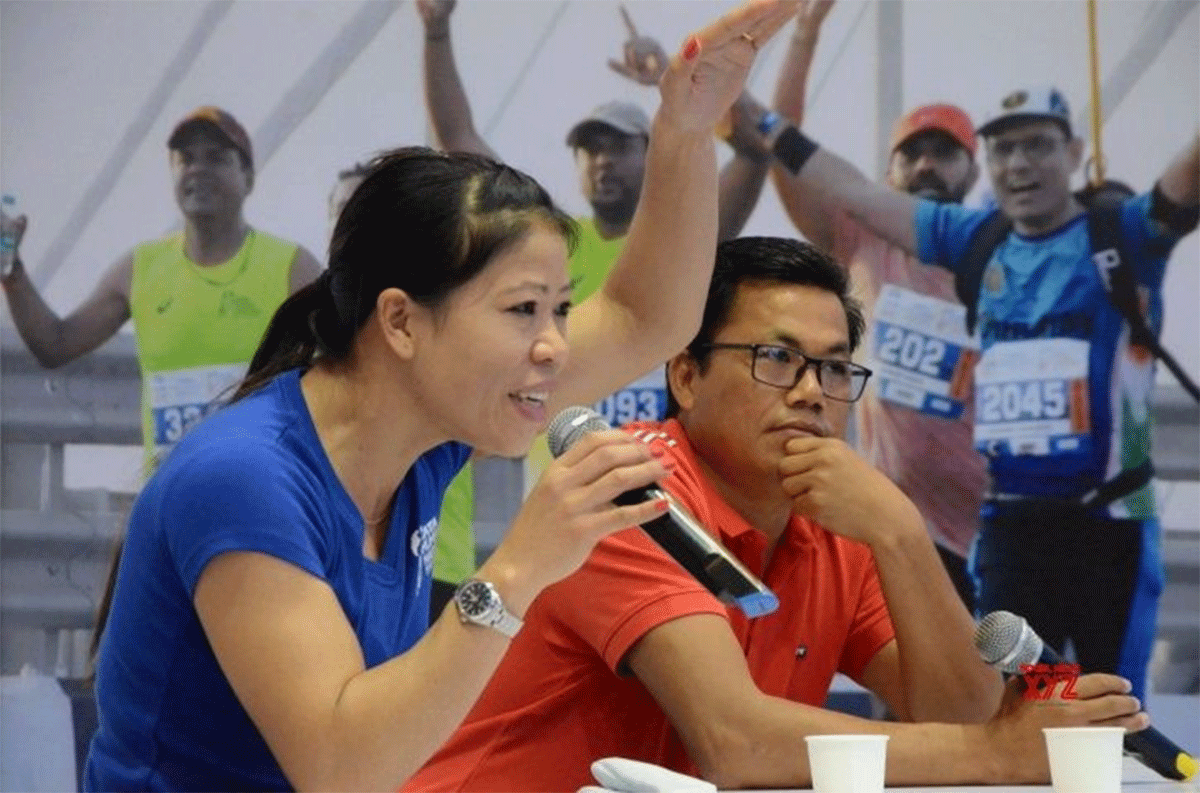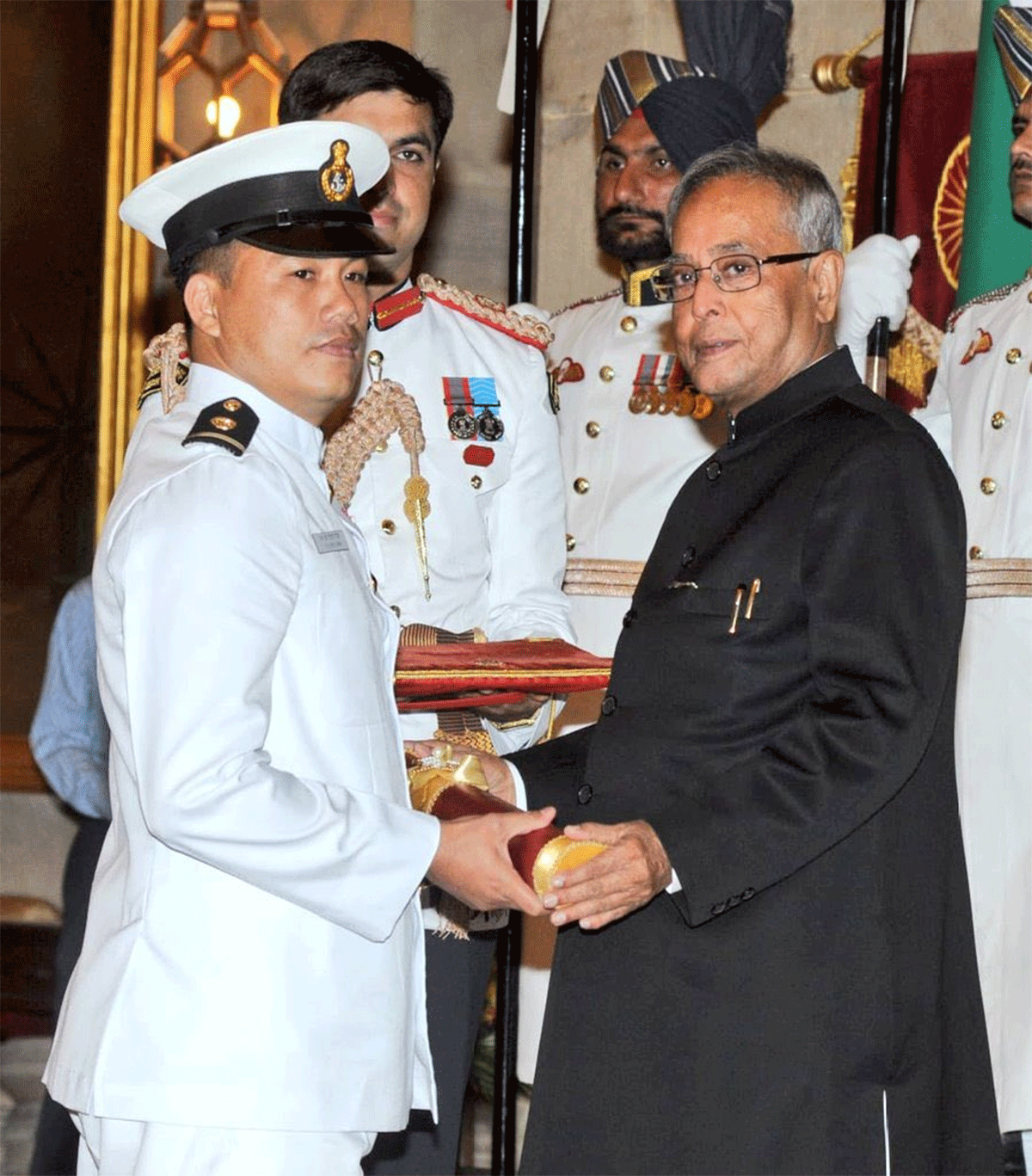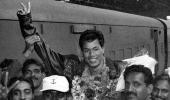Indian boxing got the first glimpse of Dingko's talent at the 1989 sub-junior nationals in Ambala where he became a champion as a 10-year-old. From there began the journey of his development into a world-class bantamweight pugilist, the one who seemed ready to explode at the biggest stages, against the toughest opponents.

He exploded on the scene like a seasoned superstar. Not many fit this description in Indian sports, especially without an Olympic medal, but then Dingko Singh was unlike most.
All of 42 and four years after losing over 70 per cent of his liver to cancer, Dingko breathed his last at his Imphal home on Thursday, leaving Indian boxing stunned and the many he inspired with a deep sense of void in their lives.
His single biggest sporting achievement was an Asian Games gold in the 1998 Bangkok edition, which was India's first in 16 years. But bigger than that was the impact he had on those who watched him out-punch two Olympic medallists that year.
"Oh my god, he was spectacular. That style was something else," recalled M C Mary Kom while talking about how she excitedly queued up to watch him fight in a show bout in Manipur after he came back from the Asiad.
For her it was like finding a hero closer home as she chased her boxing dreams.
That was the Dingko effect on a generation of accomplished north-eastern boxing stars, including M Sunranjoy Singh, L Devendro Singh and L Sarita Devi among several others.
"I never knew I had that kind of impact. I never intended to," Dingko had told PTI in an interaction back in 2010.
He was in the capital to watch the Commonwealth Games at that time and was enjoying his anonymity in the spectators' gallery before PTI caught up with him.
He couldn't be faulted for being blissfully unaware of his impact. He never really got the time to assess it.
Dingko was born to a poor family in Imphal's Sekta village and meagre resources forced his parents to leave him at a local orphanage.
It was there that scouts from the Special Area Games Scheme (SAG) started by the Sports Authority of India (SAI) first noticed the raw boxing talent in him.

Talented he definitely was, add to that mix a famously mercurial personality and it all added up to make a fearless campaigner in the ring and a daunting man to manage outside it.
"He could not be controlled by anyone. He could not be subdued by anyone," recalled Akhil Kumar, a Commonwealth games gold-medallist who has been with him in national camps.
Indian boxing got the first glimpse of Dingko's talent at the 1989 sub-junior nationals in Ambala where he became a champion as a 10-year-old.
From there began the journey of his development into a world-class bantamweight pugilist, the one who seemed ready to explode at the biggest stages, against the toughest opponents.
"Those left hooks, that aggression, he was so inspiring. I saw him intently during a National championship. What a personality he had. I know how ferocious he was because I have also taken a few of his punches during national camps," said Akhil.
That ferocity of blows was reflective of Dingko's persona too. He famously threatened to commit suicide after it appeared in newspapers that he had been dropped from the 1998 Asiad.
He was eventually named in the squad and proved his worth with a gold, subsequently honoured with Arjuna award and the Padma Shri for that career-defining moment.
"He could be dramatic but you cannot fight with a talent like that," said Gurbax Singh Sandhu, the national coach at the Bangkok Asiad.
Dingko was said to be drunk during that pre-Asiad meltdown and alcohol proved to be his undoing after the Games as well, ultimately causing the many health issues that he battled.
Early exits from the 2000 Olympics and the 2002 Commonwealth Games left Dingko's career at crossroads.
It wasn't too long before he hung up his gloves and took to coaching at Imphal's Sports Authority of India centre.
He was suspended from that job in 2014 after allegedly beating up a female weightlifter at the facility for merely professing her affection towards him.
There were countless other tales as well of Dingko losing his cool while being at the peak of his prowess.
He once tried his kit right in front of the federation officials after his complaints of it being ill-fitting were dismissed by them.

Dingko, in his inimitable style, made sure that the officials knew first hand, how unsuitable a size he had been handed. They had to ultimately change the kit for him.
"He never consciously tried to warm up to anyone for personal gains, be it coaches, the federation, officials, no one. He had such confidence in his talent. That's why he was a hero," Akhil said.
Dingko, however, remained unaware of this impact as well.
"I have mellowed, I don't get into trouble," he had said in a later interaction after tying the knot with Babai Ngongam.
But Dingko did get into trouble, perhaps the biggest of his life, in 2017 when he was diagnosed with liver cancer.
"Fighting comes naturally to me, I will fight this too," he would say.
However, every fight comes at a price. His treatment took a toll on his limited resources and there came a time when he had to appeal for help, which did come his way from several quarters.
His misery compounded with jaundice and COVID-19 in June last year, which needed one month of hospitalisation and he was overcome by a "sense of relief" on returning home, calling it the toughest one month in a long, long time.
"It's a miracle, how he fought all these ailments. Any other person wouldn't have survived this long. It shows what stuff he was made of," said Mary Kom.
The man himself seemed unaware of the magnitude of his health challenges as well.
In fact, in his numerous interactions with PTI, he made light of them.
"Main theek hun ji, ghabraiye nahi kuch nahi hota mujhe (I am fine, don't worry, nothing will happen to me)," was his oft-repeated response to a how-are-you call.
He fought hard and was determined to beat the odds just like those Olympic medallists he thrashed in a career which is perhaps comparable to a supernova explosion.
Indian boxing won't get another Dingko Singh. Better boxers will be found but fighters like him don't come easy anymore.












 © 2025
© 2025